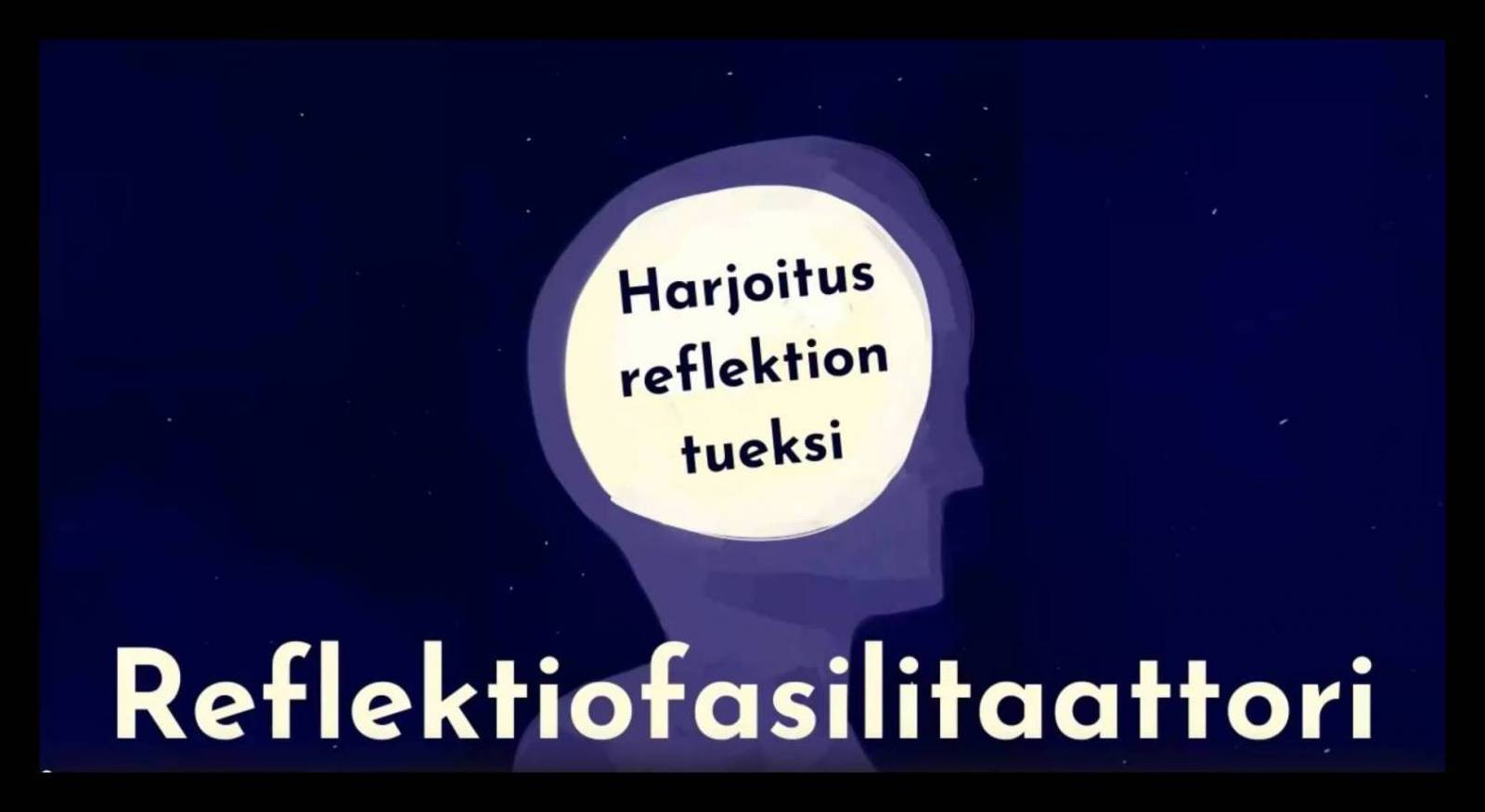The project is a combination of a research project and higher education pedagogical development activities, as the data have been gathered from multiple on-going study modules in various disciplines, and the “reflection facilitator” (RF) tool is adopted to be in use in the courses to support their learning goals.
RF is a research-based digital tool for facilitating deeper levels of reflection – those that based on earlier research are challenging to achieve in an educational context. The tool offers a new and innovative approach to facilitating students to reflect by integrating experiential, embodied and conceptual knowledge in learning, in order to enhance critical thinking and academic wellbeing.
Here reflection is understood from the perspective of transformative learning theory, more precisely, the theory of edge-emotions where reflection refers to becoming aware and critically questioning socially and culturally adopted assumptions that orient our thinking, feeling and action and which as a process involves cognitive, social experiential-emotional and biological dimensions and especially their interplay.
RF has been originally developed as a part of the pilot project OPTIMO at the Faculty of Education and Culture, Tampere University. OPTIMO aims at creating space and tools for continuous learning by encouraging both undergraduates and employees in the various educational fields to enhance their professionalism in collaboration with the Tampere University researchers. The tool is based on integrating multidisciplinary and artistic expertise.
The first sets of research contexts include courses in three faculties in Tampere University and in two other higher education institutions in Finland, as well as personnel development and career guidance services. Currently (Feb 2021) the data involves approx. 750 user experience reflections, while more data are being gathered. The research contributes to theory building as well as practical solutions in the international expertise area of reflection and academic well-being. Furthermore, the research contributes to further development of the tool and to spotting further areas of research that are revealed by the tool as an intervention to current academic learning culture.
First results indicate that the tool supports the deeper levels of reflection yielding fruits both to disciplinary learning, critical thinking and academic well-being. In this context what seems to be of importance, is that the tool appears to enhance self-compassion and support understanding of how emotions and cognitive processes intertwine in learning and reflection, as well as of how societal knowledge structures influence both their current ways of thinking and the efforts to change them. This brings about critical questions pertaining both to the paradigms of traditional academic learning approaches that often lack experiential dimensions to learning scholarly content. Furthermore, questions of self-assessment as a form of academic assessment are brought in view.
In further developing the tool, we will focus on the social dimension of learning in relation to supporting the deeper levels of personal reflection. More specifically, in collaboration with Innoduel (a digital co-creation tool) we aim to develop community level practices to foster work communities and organizations with healthier cultures for critical thinking, empathy and problem solving.
Contact:
PhD, Docent Kaisu Mälkki (kaisu.malkki@tuni.fi)
Professor Marita Mäkinen (marita.makinen@tuni.fi)
MA (Educ.) Joni Forsell (joni.forsell@tuni.fi)
More information in Finnish: website of the OPTIMO project
Text: Kaisu Mälkki, Marita Mäkinen & Joni Forsell

